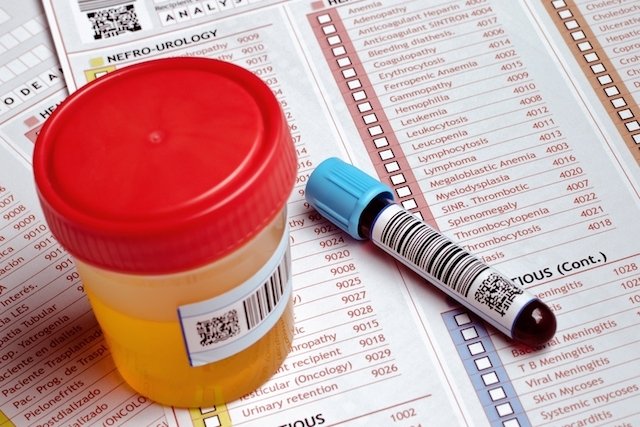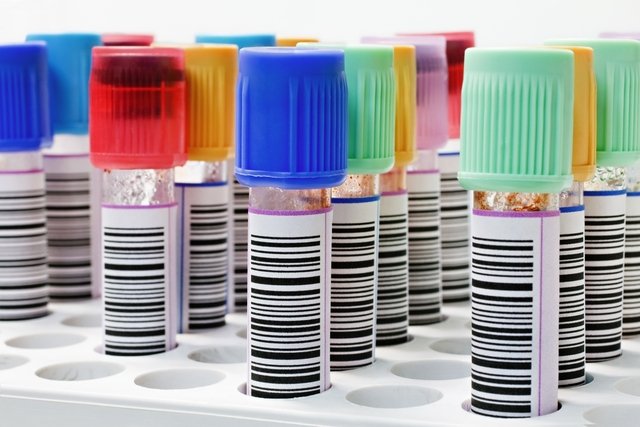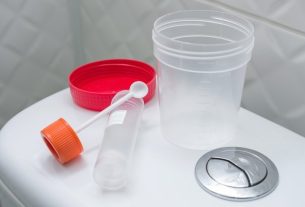The cortisol test is indicated to check whether there are problems with the adrenal or pituitary glands, such as tumors, congenital adrenal hyperplasia and Addison’s disease, as cortisol is a hormone produced and regulated by these glands.
Cortisol is a hormone that helps control stress, reduce inflammation, improve the functioning of the immune system and aid the metabolism of proteins, fats and carbohydrates in the body. Understand what the hormone cortisol is and what it is for.
In case of changes in the cortisol test, it is recommended to consult an endocrinologist or general practitioner for an evaluation, to provide better guidance on the meaning of the changes and identify their cause.

What is it for
The cortisol test is indicated for the diagnosis of diseases such as:
- Cushing’s syndrome;
- Addison’s disease;
- Congenital adrenal hyperplasia;
- Secondary adrenal insufficiency, caused by bleeding or infections that affect the adrenal glands, for example.
Through the cortisol test, it is possible to check the functioning of the adrenal and pituitary glands, which are responsible for regulating the production of cortisol in the body.
Types of cortisol tests
The type of cortisol test varies according to the sample used to measure the hormone, the most common being:
- Salivary cortisol test: assesses the amount of cortisol in saliva, which is collected directly from the person’s mouth or using a cotton swab. Sometimes collection can be done at home by the person themselves;
- Blood cortisol test: assesses the amount of cortisol in the blood, normally done in the laboratory by collecting it with a needle and syringe;
- Urine cortisol test: cortisol measurement is normally done in the person’s urine collected over 24 hours. See how to do a 24-hour urine test.
The choice of the type of exam depends on the doctor’s recommendation. Furthermore, the cortisol levels identified also vary from one test to the next.
How to prepare for the cortisol test
Preparing for the cortisol test is especially important in cases where it is necessary to take a blood sample, as the concentration of cortisol can vary throughout the day. In these cases, it is recommended:
- Fast for 4 hours before collection, either at 7 am or 4 pm;
- Avoid exercising the day before the exam;
- Rest for 30 minutes before the exam.
Furthermore, in any type of cortisol test, you must inform your doctor about the medications you are taking, especially in the case of corticosteroids, such as dexamethasone, as they can cause changes in the results.
In the case of a salivary cortisol test, saliva collection should preferably be done within 2 hours after waking up. However, if it is taken after a main meal, you should wait 3 hours and avoid brushing your teeth during this period.
Reference values
Cortisol reference values vary according to the material collected and the laboratory in which the test was carried out, and may be:
In case of changes in the cortisol test, it is recommended to consult an endocrinologist or clinician. The doctor may recommend repeating the test and carrying out others, such as measuring ACTH in the blood, to identify the possible causes of the changes. Understand what the ACTH test is for.
Changes in cortisol results
Cortisol levels above those considered normal in the urinary, salivary or blood cortisol test may be indicative of chronic stress, irregular sleep and Cushing’s syndrome, for example. Find out more causes of high cortisol.
Low cortisol levels may indicate diseases such as secondary adrenal insufficiency, Addison’s disease and congenital adrenal hyperplasia. Check out other causes of low cortisol.
Bibliography
- STATPEARLS. Cushing Syndrome. 2023. Available at: <https://www.ncbi.nlm.nih.gov/books/NBK470218/>. Accessed on April 21, 2023
- CORTISOL (BLOOD). University of Rochester Medical Center. Available at: <https://www.urmc.rochester.edu/encyclopedia/content.aspx?contenttypeid=167&contentid=cortisol_serum>. Accessed on April 21, 2023
- CORTISOL (URINE). University of Rochester Medical Center. Available at: <https://www.urmc.rochester.edu/encyclopedia/content.aspx?contenttypeid=167&contentid=cortisol_urine>. Accessed on April 21, 2023
- STATPEARLS. Adrenal Insufficiency. 2023. Disponível em: <https://www.ncbi.nlm.nih.gov/books/NBK441832/#:~:text=Primary%20adrenal%20insufficiency%20is%20characterized,which%20is%20called%20Addison%20disease>. Acesso em 21 abr 2023
- STATPEARLS. Hypercortisolism. 2023. Available at: <https://www.ncbi.nlm.nih.gov/books/NBK551526/>. Accessed on April 21, 2023
- BLAIR, Joanne et al. Salivary cortisol and cortisone in the clinical setting. Curr Opin Endocrinol Diabetes Obes. Vol.24, n.3. 161-168, 2017
- STATPEARLS. Physiology, Cortisol. 2022. Available at: <https://www.ncbi.nlm.nih.gov/books/NBK538239/>. Accessed on April 21, 2023
- OSPINA, Naykky S; YOUNG, William F; CHAYEE, Hans K. Diagnostic Testing for Elevated Cortisol in the Setting of an Adrenal Mass. JAMA. Vol.320, n.13. 1373-1374, 2018
- INDER, Warrick J; DIMESKI, Goce; RUSSELL, Anthony. Measurement of salivary cortisol in 2012 – laboratory techniques and clinical indications. Clin Endocrinol (Oxf). Vol.77, n.5. 645-51, 2012

Sign up for our newsletter and stay up to date with exclusive news
that can transform your routine!
Warning: Undefined array key "title" in /home/storelat/public_html/wp-content/plugins/link-whisper-premium/templates/frontend/related-posts.php on line 12
Warning: Undefined array key "title_tag" in /home/storelat/public_html/wp-content/plugins/link-whisper-premium/templates/frontend/related-posts.php on line 13




